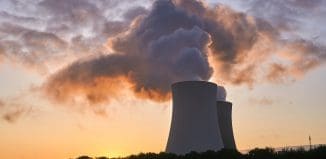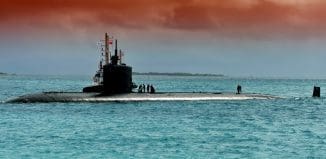Defense Politics in the Arctic – A Sleeping Giant?
This post is also available in:  עברית (Hebrew)
עברית (Hebrew)

By Meidata
The issue of Arctic defense politics hits the headlines every couple of months, and then is quickly forgotten. The cold tundra is certainly not at the top of the list when we think of a conflict hot spot.
Yet it was just last month, on May 14th, when officials from the U.S. department of defense, DoD, released an update on their role in the governments “National Strategy for the Arctic Region”. The strategy underlines U.S. commitment to “sustaining a peaceful, stable, and conflict-free Arctic region”. According to a report prepared by Meidata Competitive Intelligence, this statement should be understood within the context of political pressure facing the historically sleepy region.
i-HLS Israel Homeland Security
As in many incidents since the mid-20th century, energy is at the heart of this new potential conflict area. A US Geological Survey has estimated that about a quarter of the world’s oil and gas reserves could be hidden beneath the northern ice caps. This estimate is in conjunction with withering energy resources and expedited global climate change has drawn the attention of global superpowers to the land which was once the exclusive domain of polar bears and Santa’s elves.
Recent reports and procurement analysis demonstrates that Russia, Canada and Norway have all adjusted their military spending to reflect their strategies in ensuring national sovereignty in their arctic territories. Relevant procurements include enhancements to aerial surveillance, aerial transports, specialized “ice-breaking” offshore naval vessels and even indications of special operations equipment.
Taking these adjustments as a potential indication of an upcoming conflict would be a mistake. For now, it appears that the opposite is true. Most countries have stated their intentions to resolve any conflict amicably and to enhance cooperation in the Arctic. Indeed, Russia and Norway have resolved maritime territorial disputes in the region and actually enhanced their cooperation in the past couple of years.
The goodwill and cooperation, however, will not deter northern countries from preparing and securing their far-flung Arctic territories, especially as commercial oil drilling and exploration begins to pick up the pace. It is important that the defense industry heed the long-term visions put forth by stakeholder nations in securing their Arctic territories. This includes traditional security solutions, but may also require surveillance solutions which are suited to the unique requirements of the tough northern terrain.
Government and private market analysts of defense & security verticals continue to monitor eco-political developments in the Arctic while they are still “under the radar”to ensure that all interested parties do not miss a potential opportunity to secure the future.
By Meidata, A Market Research & Competitive Intelligence firm




























